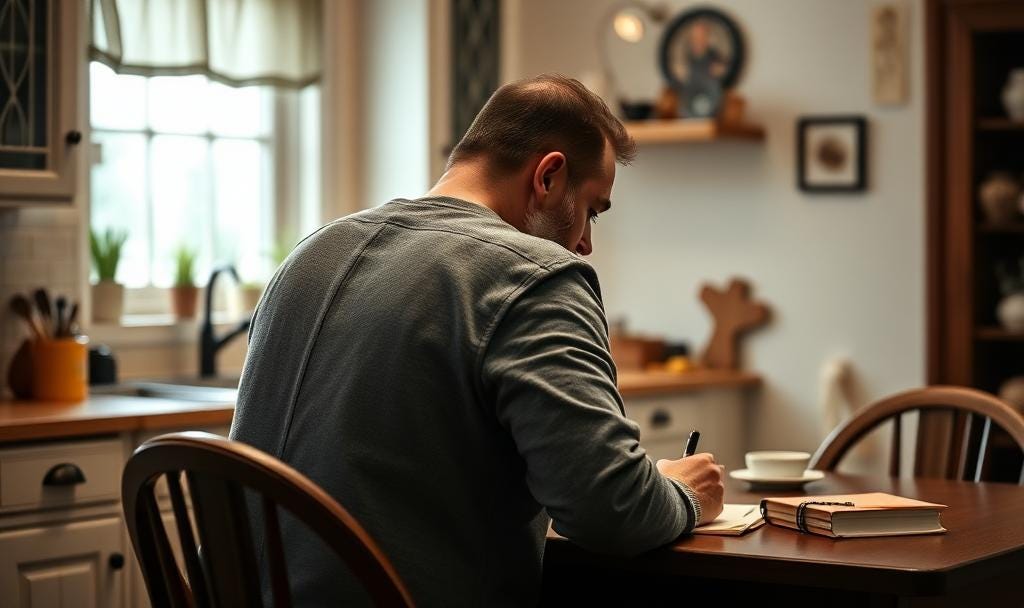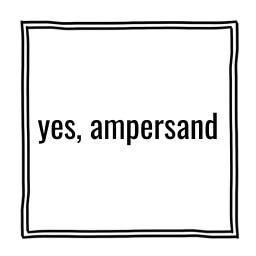Reflections on Relationships Since My Autism Diagnosis
An open letter to those who are uncertain about how to relate to me now.
It’s been an interesting few years since I identified as autistic with ADHD and received my diagnoses. Back in 2017, when this process first began, I had no idea how much my life would change. Lately, I’ve been reflecting on this journey, especially in relation to my relationships. This post is a letter for those who have struggled to stay connected with me.
TLDR: I’m finding peace in letting go of relationships that weren’t genuine, and I’m not upset. I’ve identified logical reasons why people have distanced themselves, and I hold no hard feelings. Read the post if you’re interested; skip it if you’re not. Either way, I’m okay.
If you want to know a little about me or my professional background, that’s awesome. These things help build trust. Click the button below.
[Reflections on Relationships Since My Autism Diagnosis]
To those who are uncertain about how to relate to me now,
Hello!
Before I begin, I want to acknowledge the struggle I often have in finding the right words to express myself. I understand that this is something I may never fully overcome. I can do only my best. What I share below reflects my understanding of the world around me right now, and like everything else, it may change, and that’s okay.
You might see me online posting about my autism or building my business to support other neurodivergent adults. You might also see a lot of posts about the genocide in Gaza. I’ve chosen to lean into my deeply held values around justice and human rights. That may lead you to tune out, and I’m okay with that. I’ve been known to tune out things that I have a hard time relating to as well. No hard feelings.
You probably don’t see or hear from me much these days outside of these focus areas. I’m giving myself time and space to figure out what I want and need. It isn’t personal. My withdrawal began this past January, partly as a response to how I felt interacting with others since sharing my diagnosis.
I realize now that I wasn’t realistic in my expectations. I thought my community would be interested in my perspectives and open to change, willing to evolve with me. I expected it to feel like a group project. A few people joined me with support and interest, but most did not. There are several possible reasons for that, and I want to share them and explain why they make sense.
To check out a list of my series with descriptions and links, click below.
If you’ve distanced yourself:
It’s possible that you came to know and love the masked version of me that I presented to the world. Adjusting to the more authentic person I am becoming can feel disruptive to your story of me. You might not fully understand masking or why people do it. Accepting that I’m autistic may mean reconsidering memories, interactions, or past conflicts, and that can feel frustrating because it seems forced upon you.
You may hold stigmas or stereotypes about autism that don’t match how I present. That can be difficult to reconcile. You might also fear difference and pull back because it feels hard to process what I’m sharing. I understand if you feel uncomfortable or worry about saying or doing something wrong. You may also feel shame, especially if you grew up in a culture where differences were discouraged or punished.
All of these dynamics can leave someone feeling overwhelmed. It makes sense for you to choose to step back to protect yourself.
If you don’t believe me:
I was really good at masking. It’s possible that you never “saw the signs,” especially if you didn’t know what to look for. You might believe that medical authorities should have recognized it earlier, and since they didn’t, it cannot be true. You may feel defensive about what you thought autism was, because accepting my diagnosis could mean admitting you had misjudged or mistreated me. That can be painful if you once interpreted me as lazy, selfish, controlling, rude, or difficult. It might also be hard to face this without wounding your pride. I know that admitting you were wrong can be difficult, and I don’t blame you for wanting to avoid that.
New around here? Click the button below to get your bearings.
If you’re uncomfortable taking certain risks:
It’s possible that you feel uneasy about how you treated me or misunderstood my traits. You may feel pressure to shift how you relate to me, to make space for my needs, or to reconsider long-held assumptions. You might also worry about judgment from others in your circle who are not ready to rethink what autism means in someone close to them. These reactions are human and understandable. As someone with strong pathological demand avoidance, I know the frustration that comes with feeling pressured into change.
If you feel I’m asking too much:
Most people don’t spend their time and energy focusing on self-awareness. It can feel overwhelming to be asked to look inward, rethink old assumptions, or make changes in how you show up. You may feel I’m demanding effort you don’t have, or asking you to confront parts of yourself you’d rather not examine. You may feel like I’m adding to your responsibilities, or that the cost of supporting me is more than you can give. These reactions are human, and I understand how exhausting it can be to carry more than you expected.
If you struggle to accommodate me because you were never accommodated:
Many of us grew up being told to “tough it out” or hearing that “everybody hurts.” Asking for help or naming our needs was often discouraged, shamed, or simply ignored. If that’s your experience, I understand why it might feel unfair to see me asking for support now. It can stir up grief or anger that you weren’t given the same space.
You may feel like I’m breaking rules you were forced to follow, or that my self-advocacy highlights a gap in your own story. That can be painful. What I want you to know is that my request for accommodation is not a judgment on your strength or a dismissal of your struggles. It is simply me choosing a healthier way forward.
I also believe you deserve care, even if you were never shown it. We both do. If my self-advocacy stirs up old wounds, that makes sense. I hope, in time, you can see that my efforts to honor my needs do not diminish you. They create a path where we both might imagine something better.
Free unmasking resources on my website
If this post spoke to you, I invite you to visit my website where you can download free, practical guides designed to support your unmasking journey and deepen your understanding of neurodivergence. These resources are created with care for late-identified neurodivergent adults, their allies, and anyone seeking compassionate tools to live more authentically.
If you accept me as long as everything stays the same:
Sometimes, acceptance comes with conditions. It can mean, “I’ll tolerate the label, but I’m not willing to grow with you.” I can understand how someone might feel that way, or why it might make sense. Often, it reflects a preference for comfort over connection, choosing the familiar over engaging with the changes I am experiencing. It can also reveal that the old mask I presented to the world is valued more than my authentic self. That can be painful to recognize, but it is also clarifying, helping me understand where people stand and what I can expect from our relationship.
What this all says about you, me, and our relationship:
All of these responses — whether distance, disbelief, discomfort, avoidance, or conditional acceptance — reveal as much about the dynamics between us as they do about each of us individually. They show where fear, uncertainty, or social pressure may influence how someone engages with me. They also reflect the ways I have presented myself and how much of my authentic self was hidden behind masking.
This is not about blame. It is about understanding. It clarifies what you are able and willing to give and what I need to be seen and accepted for who I truly am. It shows that relationships are always a negotiation between who we are, who we have been, and who we are becoming.
At the same time, it tells me where I can place my trust and energy. It helps me recognize which connections are mutually supportive and which ones might never fully align with the person I am growing into. That understanding is freeing, even when it is painful, because it allows me to focus on authenticity, connection, and mutual respect moving forward.
I’m going to be okay, no matter what.
I am going to continue to change. Change is good. That change is in the form of unmasking and is a necessary step for my health and wellbeing. I deserve to live authentically, to care for myself, and to prioritize my needs without fear or apology. Masking has kept me safe in the past, but it has also taken a toll on my physical and mental health. By letting go of the masks, I give myself the chance for better health, deeper fulfillment, and a longer life.
I’m not angry at those who don’t support me, and I don’t blame them for doing the best they can with the knowledge and resources they have. Their choices are shaped by their own experiences, and I can respect that while still choosing what is best for me.
Being authentic does not depend on the approval or understanding of others. I can set boundaries, seek support, and nurture myself even if others struggle to accept the changes in me. I am committed to living in a way that honors my true self, and that commitment ensures that I will be okay, no matter what.
If you’re still reading:
If you’ve made it this far, thank you. I value the time and energy it took to get here. If you want to support me and join me as I move forward in life, I’m happy to have you. Being an ally to an autistic adult simply takes care and curiosity. It certainly doesn’t require perfection. Trust me, I make mistakes all the time, and I could never judge you for doing the same.
While it may seem that supporting me requires big efforts, it’s actually quite simple. You don’t need grand gestures. The best way to show you care is to ask about my experiences and listen. I think this approach works with just about everyone, autistic or not.
Sending you love and wishing you health and wellbeing,
Mark




